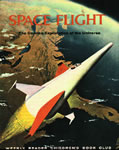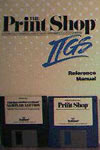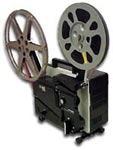The teacher librarian sustains a healthy collection through an effective maintenance program.
I hate to throw things away. How do I know when something should be pitched?
There's a really old video on first aid that the fifth grade teacher is still using. It's inaccurate in some sections. What should I do?
One of my buildings is closing. How do I get rid of everything?
The collection must be examined periodically to determine what materials need to be repaired, replaced, or removed. Whether you're examining the copyright dates on your book collection or editing broken links at your library website, maintenance is an essential aspect of collection development.
You also need policies that help you in the reconsideration process. A statement regarding the need for reevaluation of materials should be part of your selection policy. It should also indicate specifications for periodic inventories and recommendations for continuous and intermittent examination. Finally, criteria should be included for deselection of materials.
What is weeding?
 Weeding
or deselection is selection in reverse. It is the practice of discarding
or transferring to storage excess copies, rarely used items, and materials
no longer in use.
Weeding
or deselection is selection in reverse. It is the practice of discarding
or transferring to storage excess copies, rarely used items, and materials
no longer in use.
Forexample, the book on the left titled Space Flight: The Coming Exploration of the Universe by Lester Del Rey (1959) was found in the science section of the library. The information in this book is nearly half a century old.
Purging is officially withdrawing an item from the collection. You'll want to destroy or deface purged materials to avoid "haunting materials." These are items that mysteriously reappear in your check-in bin years after they were discarded.
A policy is an important part of the weeding process. If you don't have a policy statement, how are you going to respond to questions?
- What happened to "The Wizard of Oz"?
- What happened to "Future of the railroad"?
- What happened to "Sally the nurse, Fred the Fireman"?
Weed now or weed later?
The answer to this question is WEED NOW! There are two laws of nature concerning weeding. First, no matter how strange, one person will find the item useful. Second, no matter how long you've had it, ten minutes after it's gone, someone will want it. Don't worry, it happens.
How do you deal with guilt over tossing materials?
Weeding involves guilt. You feel bad because you are throwing away books, videos, or software. Think about it. Do you want a student to get inaccurate information? Do you want a little girl to think she can't be a doctor because only boys are represented as doctors in the career book she is reading? Do you want students to handle old, moldy books? At times, there are so many old books that students can't find the good ones. Weeding is essential.
 With changing needs in the curriculum and limited space for expansion, you don't have a choice. The following list discusses why weeding is important:
With changing needs in the curriculum and limited space for expansion, you don't have a choice. The following list discusses why weeding is important:
- saves space; makes room for items to breathe on the shelf
- improves access and visibility
- gets rid of poor materials
- makes collection development worthwhile
- the good items can be found
There's no reason to have a shelf filled with Apple II computer software that will never be used.
What excuses can be used for not weeding?
There are many excuses for not weeding. You may say you don't have time. In the long run weeding saves time by helping you see what you've got. you won't keep wasting time with old materials. You may say you're scared of making a mistake. Deselection criteria will help you make good decisions. You may fear throwing things out. Purging just takes practice. Repeat to yourself, quantity does not insure quality.
Remind yourself: like a healthy garden, a library must be weeded.
What should be considered in weeding?
There are some things that should not be weeded. However, you may choose to move them out of general circulation. The following list provides some examples.
- research value - good photos
- out of print
- local title
- unusual illustrations
- balance a topic
- rare items
- list for core collection
What should be weeded?
Consider the physical condition, qualitative worth and quantitative worth of the item.
First, check the physical condition. Should it be repaired, replaced, or tossed?
Second, think about the qualitative worth of the material. Do you have anything else on the topic. Is the information negative, harmful, or subjective?
Third, examine the quantitative worth. Do you need multiple copies for classes or could you toss the copy in the worst shape?
Look for the following things:
- last date of circulation ( 3 years with no circulation + 10 years old)
- physical condition
- timeliness

- bias
- reliability
- in or out of style/fad
- interest
- duplicates
- superseded editions
- subject areas
- material type - Super8, beta tapes, floppy disks
- technical aspects - sound, equipment needed
- content relevance
What kind of weeder are you?
There are many types of weeders. What kind are you?
Weekly Weeder. This person has a schedule for weeding. For example, every Friday afternoon might be devoted to weeding. Or, Tuesday morning after the staff meeting.
Whenever Weeder. This weeder knows that weeding need to be done, but doesn't seem to be able to fit it into the schedule. There's a master plan, but it may take years to get it done. Weeding may take place when there is no other choice. For example, if you're looking for something, you might weed the poor items around it. Or you might week the video collection when the shelf is full.
Quarterly Weeder. This person has a schedule like the weekly weeder and keeps on the schedule. It will be done, slowly but surely.
Inventory Weeder. Weed while doing inventory. This makes inventory take longer, but both are accomplished at once.
Major Project Weeder. The person does weeding as part of a larger project. For example, they may dive into the geography section as part of a project focusing on social studies standards.
What types of things am I likely to find?
You will find all kinds of odd things when weeding. Some examples are below:
- writing and coloring in books
- books that have been eaten
- binding that fall apart
- pages that have been removed
- food in books
- moist or wet books
Are there special considerations for weeding equipment?
Many school district have policies regarding discarded items over $200 or $500. There may be special discarding procedures such as taking the item off a district inventory list or sending it out for sale. In addition, there may be special paperwork for removal from inventory. You should keep good records on equipment repairs so you can justify removal and new purchases. These records should include who, where, when, why, and how much questions regarding equipment. Always weigh the cost of repairs versus cost of replacement. It is often cheaper to buy new.
How can you have fun with weeding?
Check out the following humorous look at weeding
- If it isn't clean, it will be thrown away
- If it doesn't look good, it will be thrown away
- if it can't be managed, it will be thrown away
- If it is abused, it will be thrown away
- If it can't be identified, it will be thrown away
- If it has no use, it will be thrown away
- If it needs batteries, it will be thrown away
- If it needs bulbs, it will be thrown away
- If it needs a manual, it will be thrown away
- If it's operation isn't inherently obvious, it will be thrown away
- If it was a gift from a faculty member who hasn't been seen since, it will be thrown away
- if it was a gift from the principal, keep it.
What is the CREW Method?
The acronym CREW stands for Continuous Review, Evaluation, and Weeding.
CREW is a cyclical process because one step leads to the next. The
complete cycle is "collection building." The CREW method is a series
of ongoing processes that continuously adds to, removes from, adjusts,
and interprets the collection to fit the needs of users.
A full explanation of The CREW Method is found in the print book The
CREW Method: Expanded Guidelines for Collection Evaluation and Weeding
for Small and Medium-sized Public Libraries by Belinda Boone,
Texas State Library (1995).
Learn more
about the CREW method at these websites:
CREW Method: Expanded Guidelines for Collection Evaluation
and Weeding for Small and Medium-Sized Public Libraries (1995)
by B. Boon from The Texas Library and Archives Commission
http://www.tsl.state.tx.us/ld/pubs/crew/index.html
Weeding with the CREW Method. Online Powerpoint presentation
by B. Boon
http://www.tsl.state.tx.us/ld/consulting/cemanager/crew.ppt
Related Websites:
CREW Method by J. Moore
http://www.tea.state.tx.us/technology/libraries/lib_downloads/weeding1.pdf
Weeding with the Crew Method
http://www.tsl.state.tx.us/ld/consulting/cemanager/crew.ppt
CREW Guidelines for Weeding Your Collection http://www.tsl.state.tx.us/ld/pubs/crew/guidelines.html#guidelinesforweeding
Summary
of the weeding guidelines by Dewey Decimal call number.
- Guidelines look like this: 10/3/MUSTIE.
- The first number is the number of years since the book's lastest copyright date.
- The second number is the number of year's since the book was checked out.
- So the number in this example, 10/3/MUSTIE, should be interpreted as "Books should be discarded if they are over ten years old or have not been checked out in three years.
- An "X" instead of a number means that that factor "is not applicable to a specific subject."
- MUSTIE means books should be discarded if they are Misleading, Ugly, Superseded by newer editions or better books, Trivial, Irrelevent to patron interests, or easily obtained Elsewhere through interlibrary loan.
Check Your Understanding
![]() Information Power - Program Administration: Principle 6. Ongoing assessment for improvement is essential to the vitality of an effective library media program. (p. 100, 108)
Information Power - Program Administration: Principle 6. Ongoing assessment for improvement is essential to the vitality of an effective library media program. (p. 100, 108)
Make It Real
What type of weeder will you be? Are your a pack rat or do you prefer a clean nest? Will you weed one or two times each year or is this a continuous process?
Read More About It
Bernholz, Charles D. (1997). Weeding the Reference Collection: A Review of the Literature
http://alexia.lis.uiuc.edu/review/5/bernholz.html
Course 4: Weeding the Collection from Idaho State Library
http://www.lili.org/forlibs/ce/able/course4/01index.htm
Overview of weeding process.
Evans Handay, May Alice. Some Special Considerations...
By Dewey Section.
http://www.alpine.k12.ut.us/depts/media/elemlessons_rev/m6-mc_management/l3weed.html
Discusses issues about weeding each Dewey section.
Johnson, Doug (Aug./Sept. 2003). Head for the Edge: Weed! Library
Media Connection
http://www.doug-johnson.com/dougwri/weed.html
Klopfer, Karen. Weed It! For an Attractive and Useful Collection. Western Massachusetts Regional Library System.
http://www.wmrls.org/services/colldev/weed_it.html
Kramer, Pamela K. Weeding as a Part of Collection
Development. 2002.
http://www.islma.org/pdf/weeding.PDF
Livingston, Sally (1997). Weeding Library Media Center Collections. Jefferson County Schools, KY.
http://www.pld.fayette.k12.ky.us/lms/weed.htm#top
Materials De-selection Policy at Hamilton Public Library, Ontario, Canada
http://www.hpl.hamilton.on.ca/Info/Policies/deselect.shtml
Sunlink Weed of the Month Club
http://www.sunlink.ucf.edu/weed/
Guidelines and suggestions for weeding collections a little at a time as well as for adding quality materials.
Weeding from Collection Development Training, Arizona Public Libraries
http://www.dlapr.lib.az.us/cdt/weeding.htm
Weeding the Library Media Center Collections by Betty Buckingham et al for the Iowa Department of Education
http://www.iema-ia.org/IEMA209.html
Weeding: A Practical Manual for Librarians at Jefferson County Public Schools, KY
http://lms.jefferson.k12.ky.us/Forms/resourcelib/Weeding%20Coll..pdf
Weeding the Collection from Idaho State University
http://www.lili.org/forlibs/ce/able/course4/01index.htm
Materials Repair / Maintenance
Book Arts Web
http://www.philobiblon.com/
Information on bookbinding, repair, and conservation. This site also has links to related sites.
Care and Handling of CDs and DVDs from National Institute of Standards and Technology
http://www.itl.nist.gov/div895/carefordisc/index.html
Preservation of Materials
Caring for Your Collections – Preservation from Library of Congress
http://www.loc.gov/preserv/careothr.html
Conservation OnLine (COoL) a project of the Preservation Department of Stanford University Libraries
http://palimpsest.stanford.edu/
Conservation information, covering a wide spectrum of topics of interest to those involved with the conservation of library, archives and museum materials.
Selected Section:
Disaster Preparedness and Response
http://palimpsest.stanford.edu/bytopic/disasters/
Disaster Assistance from Northeast Document Conservation Center
http://www.nedcc.org/welcome/disaster.htm
Emergency assistance program for institutions and individuals with damaged paper-based collections.
Related Section:
Emergency Management Technical Leaflets
http://www.nedcc.org/plam3/index3.htm
Disaster Mitigation Planning Assistance from Michigan State University Libraries and the Center for Great Lakes Culture
http://disaster.lib.msu.edu/
Contains examples of disaster plans, information on recovery techniques, and links to regional conservation and preservation centers.
Disaster Response: A Selected Annotated Bibliography from American Library Association
http://www.ala.org/...
ALA fact sheet with links to disaster preparedness web sites, and to information on training and to other resources, plus a select book bibliography.
Healthy School Environments from National Clearinghouse for Educational Facilities (NCEF)
http://www.edfacilities.org/rl/healthy_schools.cfm
Resource list of links, books, and journal articles on environmentally safe and healthy school buildings.
Lyall, Jan. Disaster Planning for Libraries and Archives: Understanding the Essential Issues, 1993.
http://www.nla.gov.au/nla/staffpaper/lyall1.html
A disaster plan is a document which describes the procedures devised to prevent and prepare for disasters, and those proposed to respond to and recover from disasters when they occur. The responsibility for performing these tasks is allocated to various staff members who comprise 'the disaster team'.
Mold from Chicora Foundation, Inc.
http://www.chicora.org/mold.htm
How to deal with it, and a very scientific explanation of what it is.
Mold and Moisture, Appendix H from the Environmental Protection Agency
http://www.epa.gov/iedweb00/schools/tfs/guideh.html
This Indoor Air Quality (IAQ) kit aims at helping control indoor mold growth.
Mold Related Web Sites (Links) from California Air Quality Program
http://www.cal-iaq.org/iaqsheet.htm
Patkus, Beth Lindblom. Emergency Salvage of Moldy Books and Paper. Northeast Document Conservation Center.
http://www.nedcc.org/plam3/tleaf39.htm
This leaflet provides some basic information about mold and outlines the steps that need to be taken to stop mold growth and begin to salvage collections.
Pennavaria, Katherine. Nonprint Media Preservation: A Guide to Resources on the Web. C&RL News, 64(8), Sept 2003.
http://www.ala.org/ala/acrl/...
Preservation from U.S. National Archives & Records Administration
http://www.archives.gov/preservation/index.html
Site deals with the preservation and recovery of paper, books, and other materials.
Selected Section:
A Primer on Disaster Preparedness, Management and Response: Paper-Based Materials http://www.archives.gov/preservation/primer_disaster_preparedness.html
Preservation 101 from Northeast Document Conservation Center, Andover, MA
http://www.nedcc.org/p101cs/p101wel.htm
An online course in the preservation of materials
Procedures and Treatments Used for Book Repair and Pamphlet Binding from University of Illinois Library
http://gateway.library.uiuc.edu/preserve/procedures.html
Simple Book Repair Manual by the Dartmouth Libraries
http://www.dartmouth.edu/~preserve/repair/repairindex.htm
Tennant, Roy. Digital Libraries-Coping With
Disasters. Library Journal, Nov 2001.
http://www.libraryjournal.com/index.asp...
What can be done to protect your digital library services and collections from the many disasters—whether they be outrageous or minor—that may befall those who do not prepare.